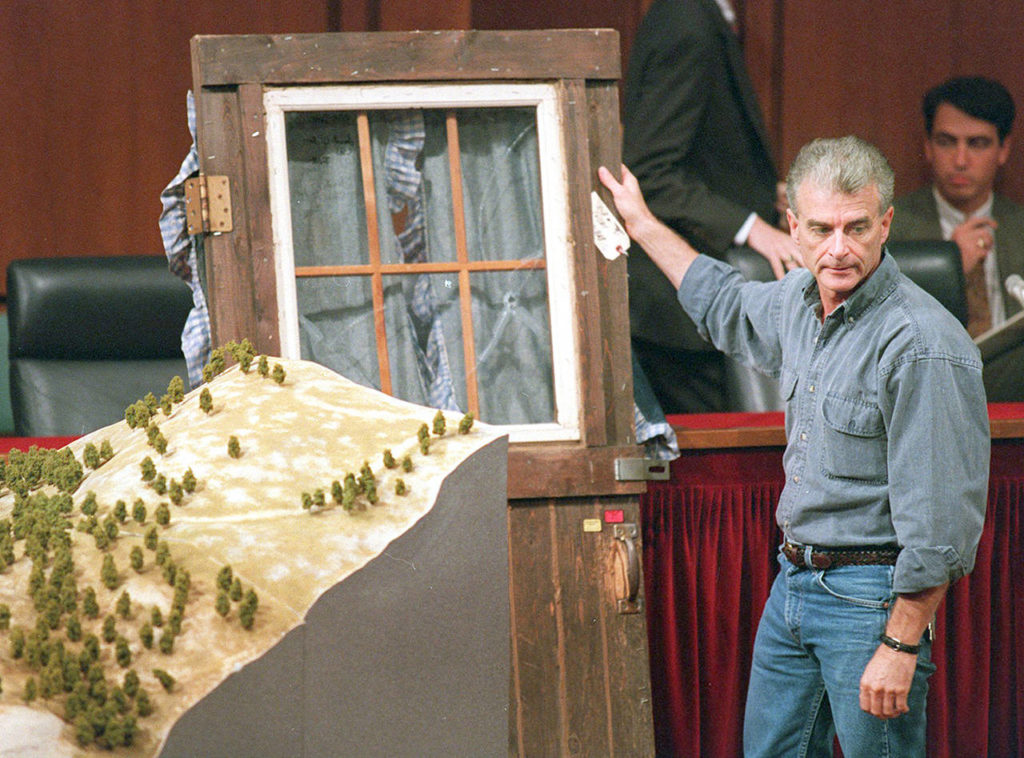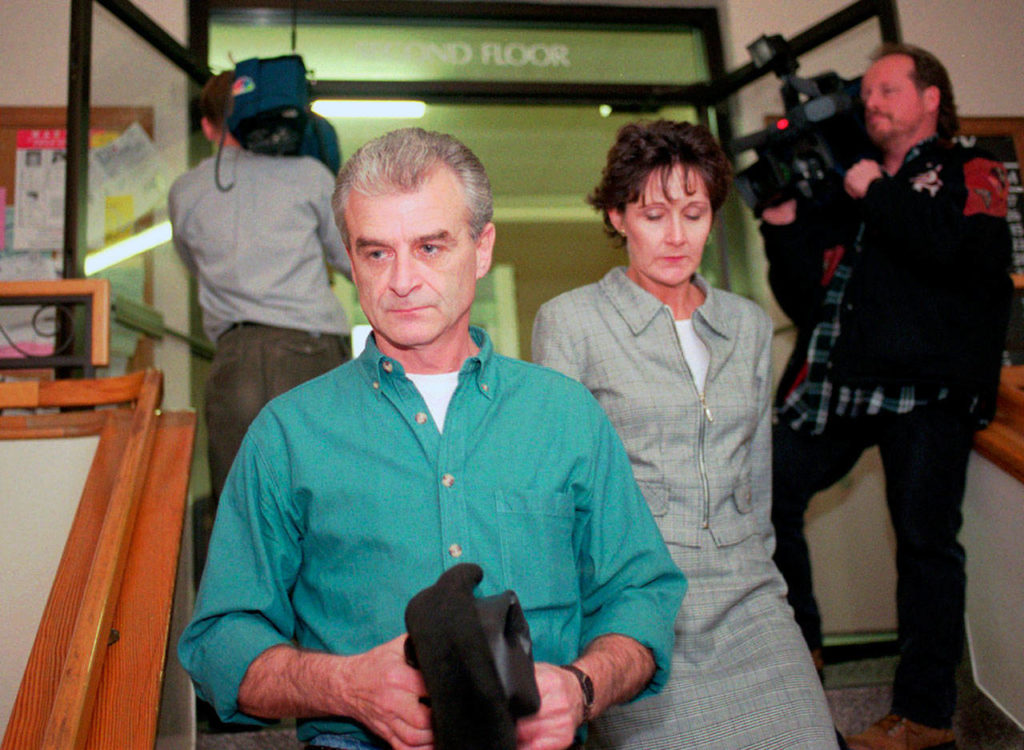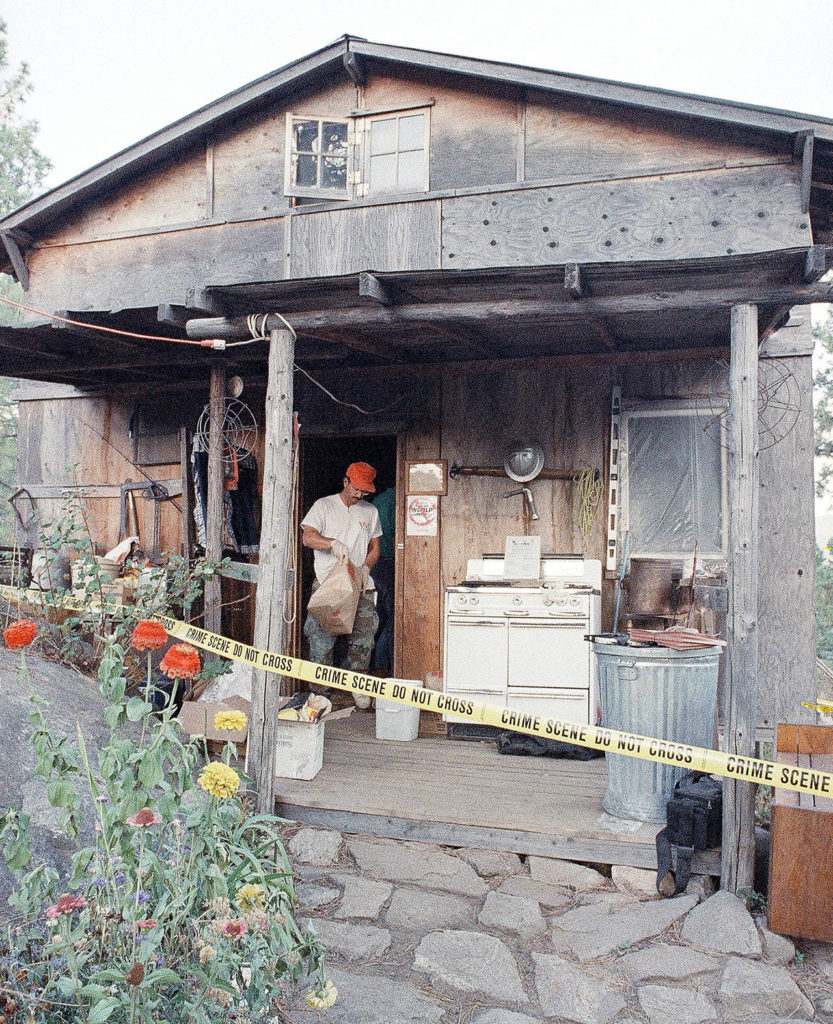By Nicholas K. Geranios / Associated Press
SPOKANE — It’s been a quarter-century since a standoff in the mountains of northern Idaho left a 14-year-old boy, his mother and a federal agent dead and sparked an expansion of radical right-wing groups in the United States that continues today.
The gunfight at Ruby Ridge occurred when agents approached Randy Weaver’s property near the Canadian border looking for a place to arrest the military veteran on gun charges. They had been investigating him for possible ties to white supremacist and anti-government groups.
Weaver, his daughters and a friend holed up in the family’s cabin for 11 days before surrendering on Aug. 31, 1992.
Twenty-five years later, here’s a look at the standoff and some of its lingering effects:
ANTI-GOVERNMENT INSPIRATION
“Ruby Ridge continues to be an inspiration for the rise in extreme anti-government politics,” said Ryan Lenz of the Southern Poverty Law Center, which tracks and studies radical groups.
The number of far-right, anti-government militia groups grew dramatically after the election of Barack Obama, the country’s first black president, Lenz said.
Such groups historically drop off when a Republican becomes president, Lenz said. Instead, they burst into the public arena with the election of President Donald Trump.
That led to the recent violent conflict between white supremacists and their opponents in Charlottesville, Virginia, and disputes over Confederate monuments.
Experts also point to a separate case involving anti-government icon Cliven Bundy, of Nevada. Last week, a federal jury in Las Vegas refused to convict four men accused of threatening and assaulting federal agents by wielding assault weapons in a 2014 confrontation near Bundy’s ranch.
Much of this tumult stemmed from Ruby Ridge, experts say.
The standoff is one of several things that spurred the resurgence of right-wing extremism in the 1990s, said Mark Pitcavage, a spokesman for the Anti-Defamation League, a Jewish civil rights organization.
“We are still in the midst of that,” he said.
THE WEAVERS
The roots of Ruby Ridge were planted in the 1980s, when Weaver moved his family to Idaho to escape what he saw as a corrupt world.
Weaver eventually was suspected of selling two illegal sawed-off shotguns to a government informant. To avoid arrest, he holed up on his land.
On Aug. 21, 1992, a team of U.S. marshals scouting the thick forest to find suitable places to arrest Weaver came across his friend Kevin Harris and Weaver’s 14-year-old son, Samuel, in the woods. A gunfight broke out. Samuel Weaver and Deputy U.S. Marshal William Degan were killed.
The next day, an FBI sniper shot and wounded Randy Weaver. The sniper also killed Randy’s wife, Vicki, with a shot to the head, and wounded Harris.
The survivors stayed in the cabin Weaver built, ignoring pleas to surrender from people like Aryan Nations leader Richard Butler, whose now-defunct neo-Nazi group was based in nearby Hayden Lake. Ruby Ridge became a magnet for people with anti-government leanings, who gathered near law enforcement barricades.
The family finally surrendered, and Randy Weaver was acquitted of the most serious charges against him. He and his three daughters filed a wrongful death lawsuit, and the government paid them $3.1 million in 1995.
WACO AND OKLAHOMA CITY
A few months after Ruby Ridge, federal agents laid siege to the Waco, Texas, compound of the Branch Davidians, a religious sect. An assault was launched, and a fire destroyed the compound and killed more than 70 people.
Timothy McVeigh cited both Ruby Ridge and Waco as motivators when he bombed the federal building in Oklahoma City in 1995.
TRUMP’S ELECTION
Today, experts believe anti-government activities are growing across the U.S., fed in part by Trump’s election, said Bill Morlin, who covered Ruby Ridge as a newspaper reporter and now writes for the Southern Poverty Law Center.
The issue, experts say, is that Trump has been slow to condemn white supremacists and distance himself from hate. For instance, he was slow to reject the endorsement of former KKK leader David Duke. After Charlottesville, Trump was silent at a news conference when journalists asked whether he rejected the support of nationalist groups.
“Really, really good,” the white supremacist website Daily Stormer wrote of that silence. “God bless him.”
A TURNING POINT
Author Jess Walter was a young newspaper reporter in nearby Spokane, Washington, who covered the Idaho standoff and then wrote what’s considered a definitive book about it called “Ruby Ridge.”
In a recent article for The Spokesman-Review newspaper, Walter said Ruby Ridge brought together divisive themes of race, religion, guns, law enforcement and Western mythology. “Twenty-five years later, we have certainly picked our sides,” Walter wrote.
“Sometimes it seems like the whole country has become the two sides at that roadblock at Ruby Ridge, seduced by paranoia, by the reduction of complex ideas into protest signs and bumper stickers or, now, into 140 characters.”
Talk to us
> Give us your news tips.
> Send us a letter to the editor.
> More Herald contact information.






























